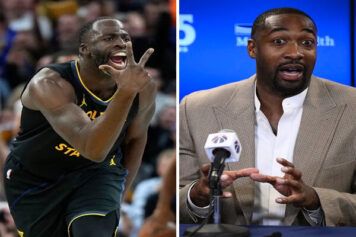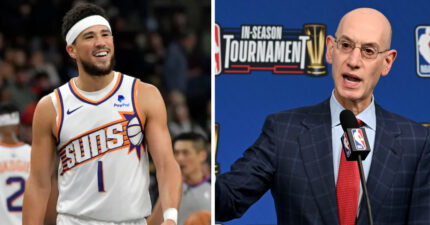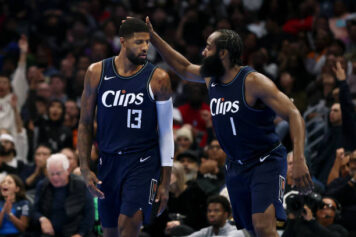And so the ax of NBA justice has fallen upon Donald Sterling’s ownership of the Los Angeles Clippers, as he is banned for life by NBA Commissioner Adam Silver during a 2:00pm EST press conference that was broadcast live on all major television news networks. His ban is not the first such of its kind in major American professional sport. Late Cincinnati Reds owner Marge Schott was banned from Major League Baseball from 1996-1998 for saying of Adolf Hitler ‘everybody knows he was good at the beginning, but he just went too far’, and she was banned for a year in 1993 for racist statements against blacks, Jews and Asians. But there have been many other instances where racist franchise owners have run off at the mouth and received no punishment.
As was first pointed out in the New York Daily News, Calvin Griffith moved the Washington Senators from the nation’s capital to Minneapolis in 1961. He later said: “It was when we found out you only had 15,000 blacks here. Black people don’t go to ballgames, but they’ll fill up a rassling ring and put up such a chant it’ll scare you to death. We came here because you’ve got good, hard-working white people here.” Making that statement in 1978, Griffith received no punishment from commissioner Bowie Kuhn.
A year later, Ted Stepien, then owner of the Cleveland Cavaliers, said his ideal roster would be at least 50% white for marketing purposes. He was quietly convinced to sell the team to Gordon Gund in 1983.
To be certain, there is a long history of professional sports franchise owners who looked upon their players as property, and as being at the head of a slave and master dynamic that is played out between team owners and athletes. Even with the departure of Sterling, there are likely other NBA owners, as well as NFL and MLB owners, who believe in the plantation dynamic of professional sports. The common theme circulating in many African-American media circles in the aftermath of Adam Silver’s announcement is that the ban was the right way to go. Now the eyes of the nation are looking at the NBA in a sideways manner. There are certain to be some who cannot escape the belief that the NBA had always been aware of Sterling’s true nature, despite the league celebrating itself as the model of diversity and inclusion among professional sports leagues and in corporate matters as well.
It is possible the NBA could try to explain its inability to take action in the past for Sterling’s blatantly racist nature, a nature that had manifested itself in a lawsuit from Elgin Baylor as recently as 2008 and a sexual harassment suit as recently as 2009, for 100 years yet never completely satisfy some black folks who would readily believe the league empowered this racist for years. Now the world awaits the vote of the other 29 NBA team owners who will be called upon to vote on whether Sterling is to be eliminated or not. Dallas Mavericks’ owner Mark Cuban is on record as stating any vote to remove Sterling’s ownership was “a slippery slope." Could there be others who, like Cuban, don’t feel comfortable about the prospect of removing an owner who has not committed any crimes? Through the pomp and fury, a major theater piece is already being fashioned. One in which there is a small possibility that the owners will vote for Sterling to continue his association with the NBA. Even if the NBA owners do vote to remove him, anything but a unanimous vote will lead some to believe that decenters who voted counter to the majority did so because they too support racism.



